-
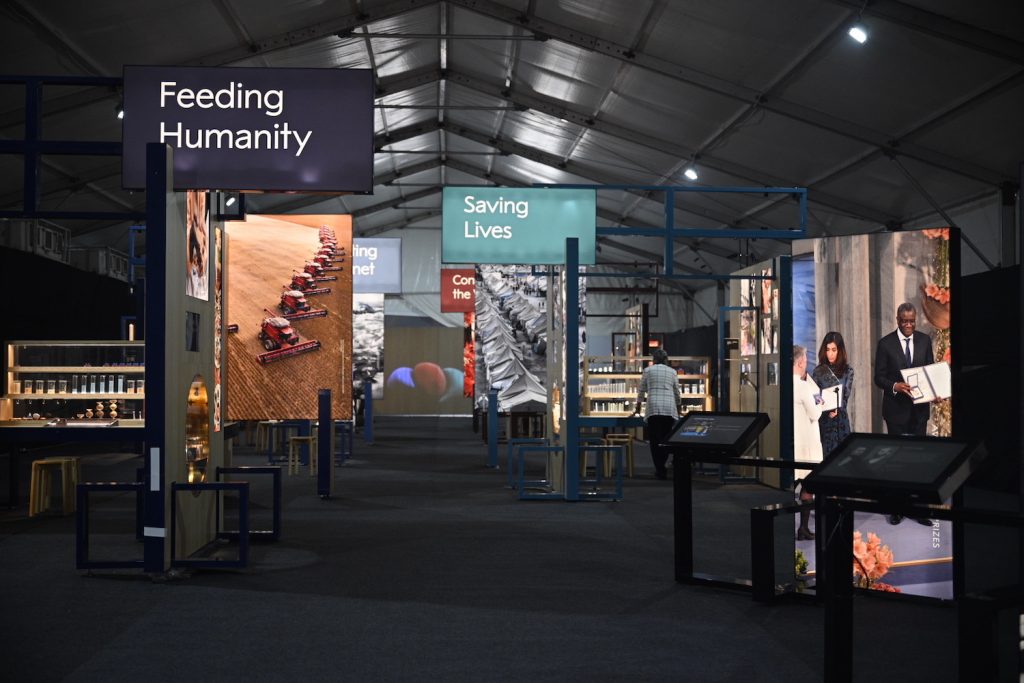
The new travelling exhibition ‘For the greatest benefit to humankind’ was inaugurated 11 September 2019 in Mohali, India. Photo: Alexander Mahmoud
-
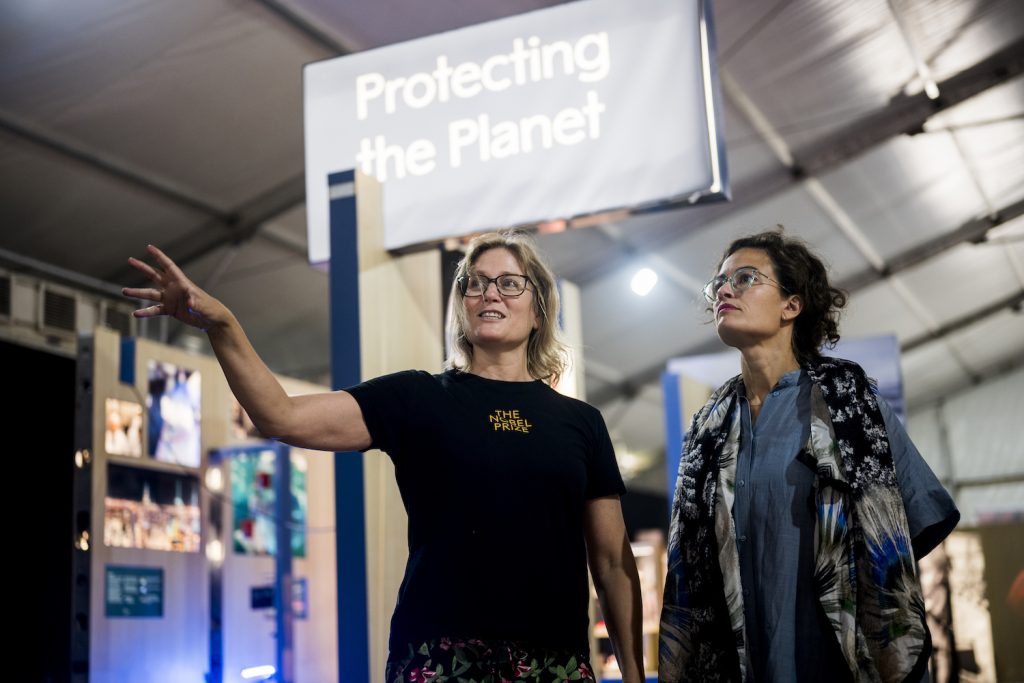
Anna Busch and Erika Lanner. Photo: Alexander Mahmoud
-
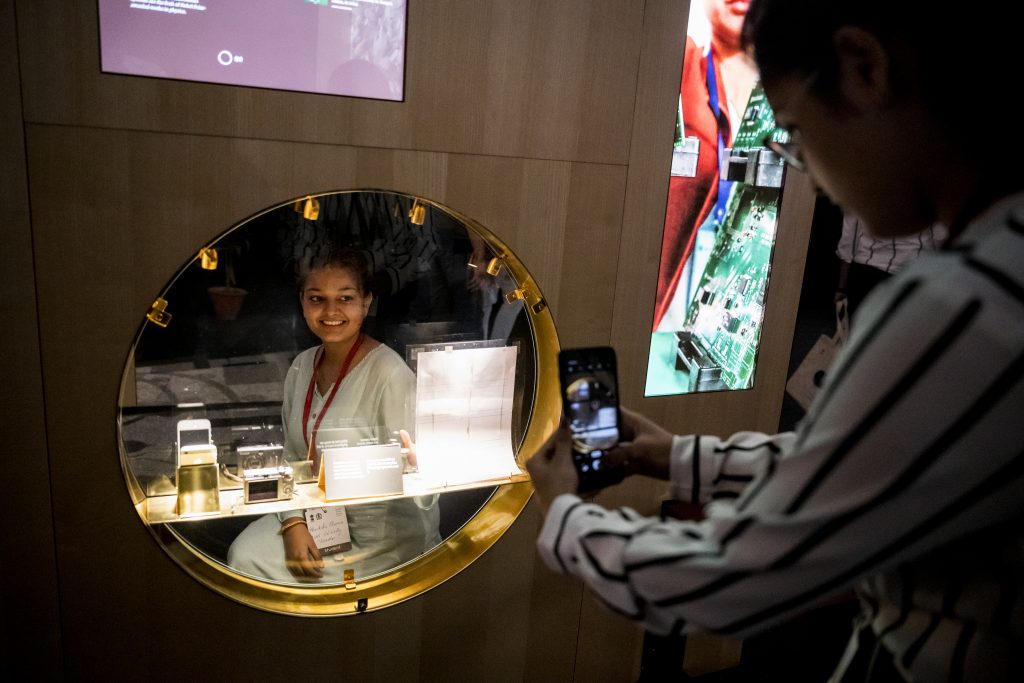
The new travelling exhibition ‘For the greatest benefit to humankind’ was inaugurated 11 September 2019 in Mohali, India. Photo: Alexander Mahmoud
-
The new travelling exhibition ‘For the greatest benefit to humankind’ was inaugurated 11 September 2019 in Mohali, India. Photo: Alexander Mahmoud
-
Anna Busch and Erika Lanner. Photo: Alexander Mahmoud
-
The new travelling exhibition ‘For the greatest benefit to humankind’ was inaugurated 11 September 2019 in Mohali, India. Photo: Alexander Mahmoud
The exhibition highlights how Nobel Laureates have made the world a better place – showcasing discoveries and achievements that have saved lives, fed humanity, connected people and protected the planet.
“Humanity today face many challenges, be it with regard to global warming, food shortages, illness or conflicts. The history of the Nobel Prize tells us that there is a way forward – science, literature and peace efforts are capable of improving and changing the world. I hope many school children and teachers in the area will be able to visit the exhibition. We want to convey a message of inspiration to the younger generation through our exhibition and show that it is possible to create a better world,” says Erika Lanner, Director of Nobel Prize Museum in Stockholm, Sweden.
“The world premiere of Nobel Prize Museum’s new exhibition in Punjab as part of Nobel Prize Series India 2019, gives our teachers and students a unique opportunity to learn about world-changing inventions and the journey associated with them. DBT’s Partnership with Nobel Media has been very successful in inspiring thousands of students and teachers and this year the new exhibition has catalyzed a global dialogue of shared learning and experience. The young minds we inspire will be motivated to find novel and innovative ways of addressing global challenges,” states Dr. Renu Swarup, Secretary, Department of Biotechnology.
“Research and innovation are the tools that enable understanding of global challenges as well as finding solutions for the same. This opens new vistas of development leading to overall well-being. We are thus making all possible efforts to develop strong community of researchers in the state as well as ecosystem for innovations to thrive. The interaction with Nobel Laureates will indeed help immensely in igniting minds of our young researchers, students and teachers to align their pursuits with vision of the state Government,“ states Shri RK Verma, IAS Principal Secretary to Govt of Punjab, Department of Science Technology and Environment.
The Nobel Prize Series India 2019 brings Serge Haroche, who was awarded the 2012 Nobel Prize in Physics and Kailash Satyarthi, recipient of the 2014 Nobel Peace Prize. They will be accompanied by Juleen Zierath, professor of clinical integrative physiology and a member of the Nobel Committee at Karolinska lnstitutet in Sweden. May-Britt Moser, who was awarded the 2014 Nobel Prize in Physiology or Medicine, will take part in a virtual session.
Laura Sprechmann, CEO of Nobel Media, comments on the theme for Nobel Prize Series India:
“The Nobel Prize shows that humanity can change the world for the better – and it starts with education. Investing in education is investing in the future. Education enables us to become active citizens and reach new insights in our quest to understanding ourselves and our universe. By making education accessible to everyone, we can make sure that human potential does not get wasted.”
The Nobel Prize Series inspires people to seek knowledge, ask questions and contribute to improving the world. By sharing achievements and stories of Nobel Laureates with a global audience, the programme encourages engagement in science, literature and peace in line with Alfred Nobel’s vision.
As part of Nobel Prize Series India a special conference for teachers took place at National Agri-Food Biotechnology Institute (NABI) in Mohali on 11 September. Discussions were around how to keep on improving education to make students reach their top potential. How did the Nobel Laureates learn all the things they needed to make such a difference in the world? What do they think are important skills and methods in teaching?
On 12 September Nobel Prize Series Lectures will be held at Punjab Agricultural University. This will be followed by student round tables and further discussions. On 13 September Laureate Kailash Satyarthi will be making school visits in Delhi.
The exhibition in Mohali is open to the public from 12 September 2019 – 11 October 2019, every day from 9.00 – 17.00.
Nobel Prize Museum
The Nobel Prize shows that ideas can change the world. The courage, creativity and perseverance of the Nobel Laureates inspire and gives hope for the future. Nobel Prize Museum in Stockholm, Sweden tell about the Nobel Laureates and their contributions for the greatest benefit to humankind. Based on the Nobel Prize’s unique combination of fields – natural sciences, literature and peace. The museum examines the great issues of our time and show how we can respond to them with science, humanism and cooperation. Through exhibitions, school programmes, lectures, videos, in-depth guided tours and donated artefacts, the Museum would like to generate public engagement for a better world.
The Nobel Prize Series
The Nobel Prize Series is a multi-disciplinary forum featuring an exhibition, seminar, lectures, roundtables and other interactive dialogue. This year the series will be conducted at the National Agri-Food Biotechnology Institute and Punjab Agricultural University in Punjab in addition to Delhi from 11 – 13 September. The theme for this year’s programme is teaching and learning. Education is the fundamental pillar of stable democracies, human well-being and sustainable societies. It’s through teaching and learning that citizens become actively engaged in the quest for understanding ourselves and our universe.
The Nobel Prize Series India 2019 is organized by Nobel Media in cooperation with Department of Biotechnology (DBT), Ministry of Science and Technology and the Government of Punjabwith the kind support of Nobel International Partners 3M, ABB, Ericsson, Scania and Volvo Cars. Supporting partner is the Mehta Family Foundation.Supporting host institutions in India are National Agri-Food Biotechnology Institute (NABI) and Punjab Agricultural University.
More information:
https://www.nobelprize.org/events/nobel-prize-series/india-2019
Press images are to be found at:
https://bit.ly/2lx7rTO
-
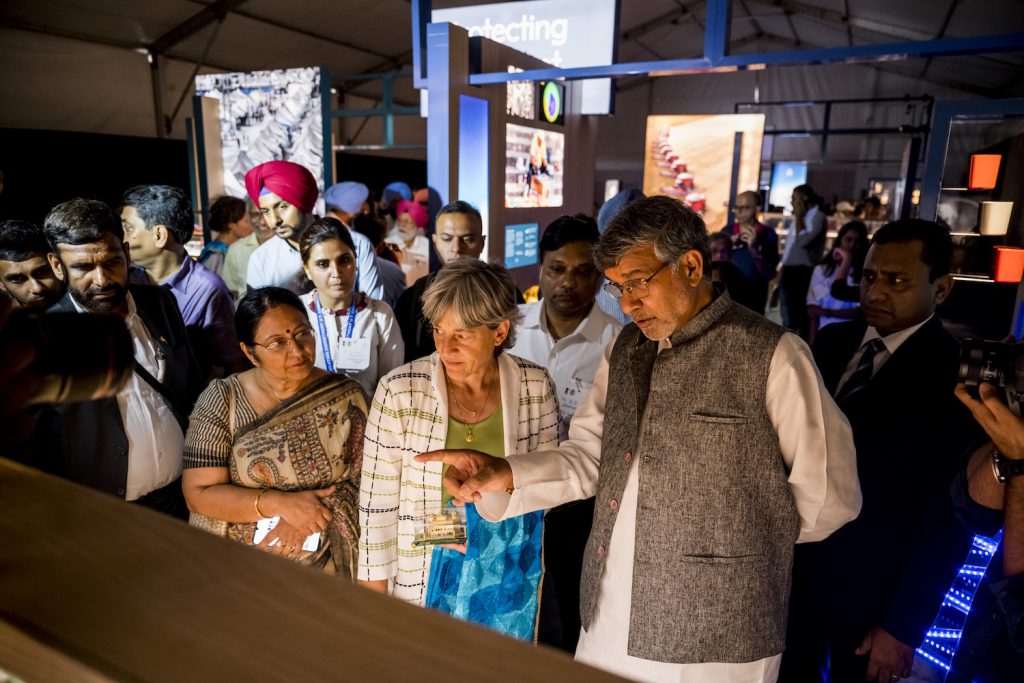
Kailash Satyarthi, recipient of the 2014 Nobel Peace Prize together with Juleen Zierath, professor of clinical integrative physiology and a member of the Nobel Committee at Karolinska lnstitutet. Photo: Alexander Mahmoud
-
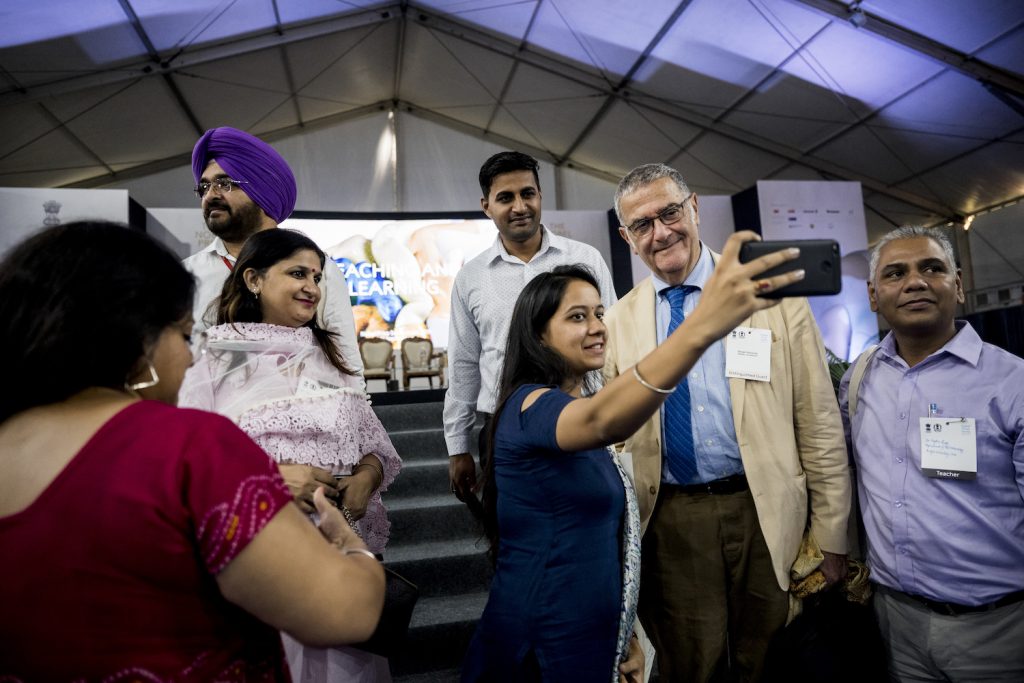
Serge Haroche, who was awarded the 2012 Nobel Prize in Physics took part in the Nobel Prize Series India 2019. Photo: Alexander Mahmoud
-
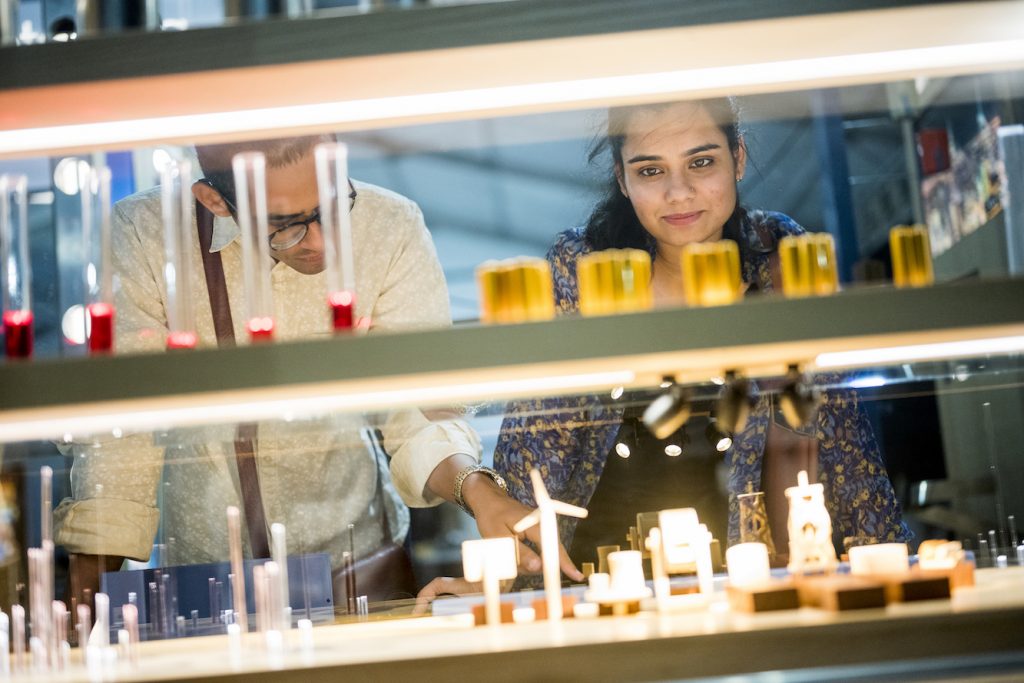
World premiere of exhibition demonstrating the contributions of Nobel Laureates. Photo: Alexander Mahmoud
-
Kailash Satyarthi, recipient of the 2014 Nobel Peace Prize together with Juleen Zierath, professor of clinical integrative physiology and a member of the Nobel Committee at Karolinska lnstitutet. Photo: Alexander Mahmoud
-
Serge Haroche, who was awarded the 2012 Nobel Prize in Physics took part in the Nobel Prize Series India 2019. Photo: Alexander Mahmoud
-
World premiere of exhibition demonstrating the contributions of Nobel Laureates. Photo: Alexander Mahmoud